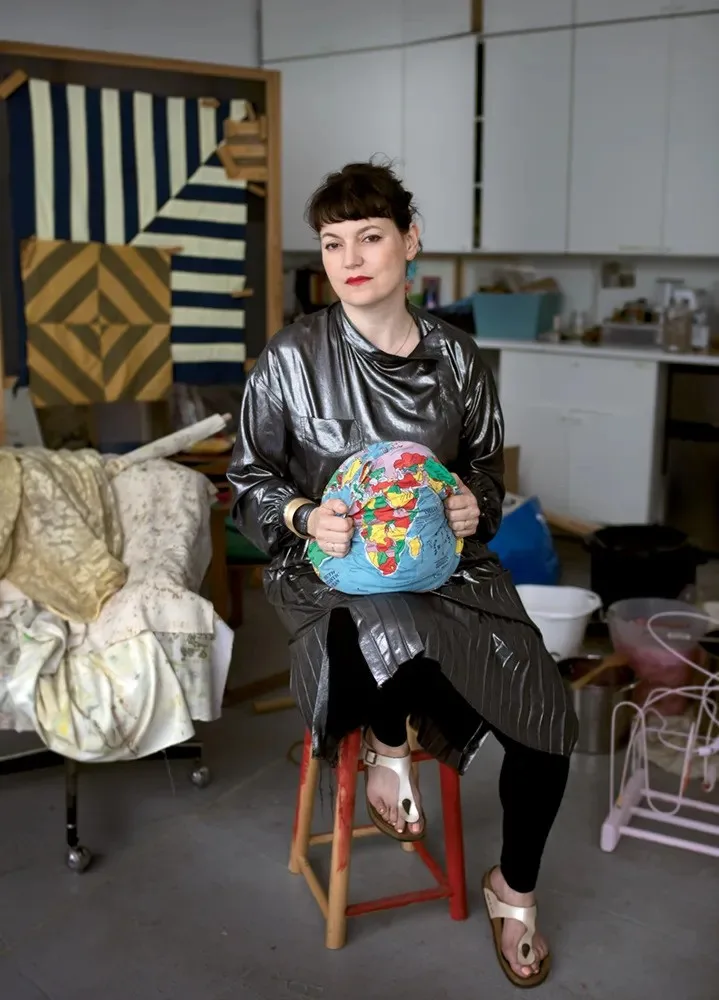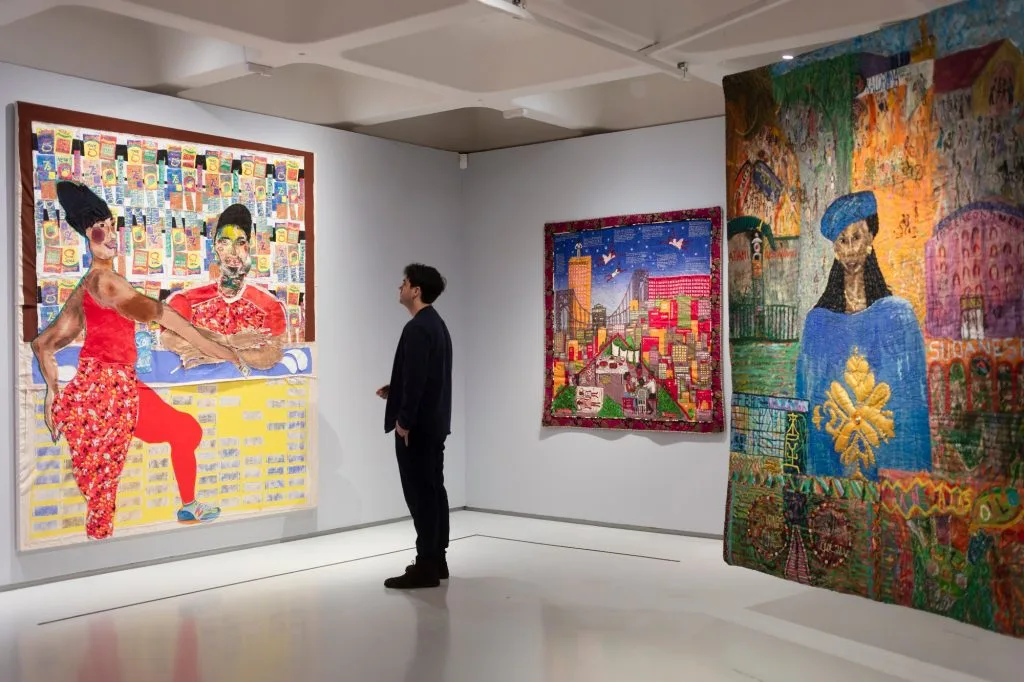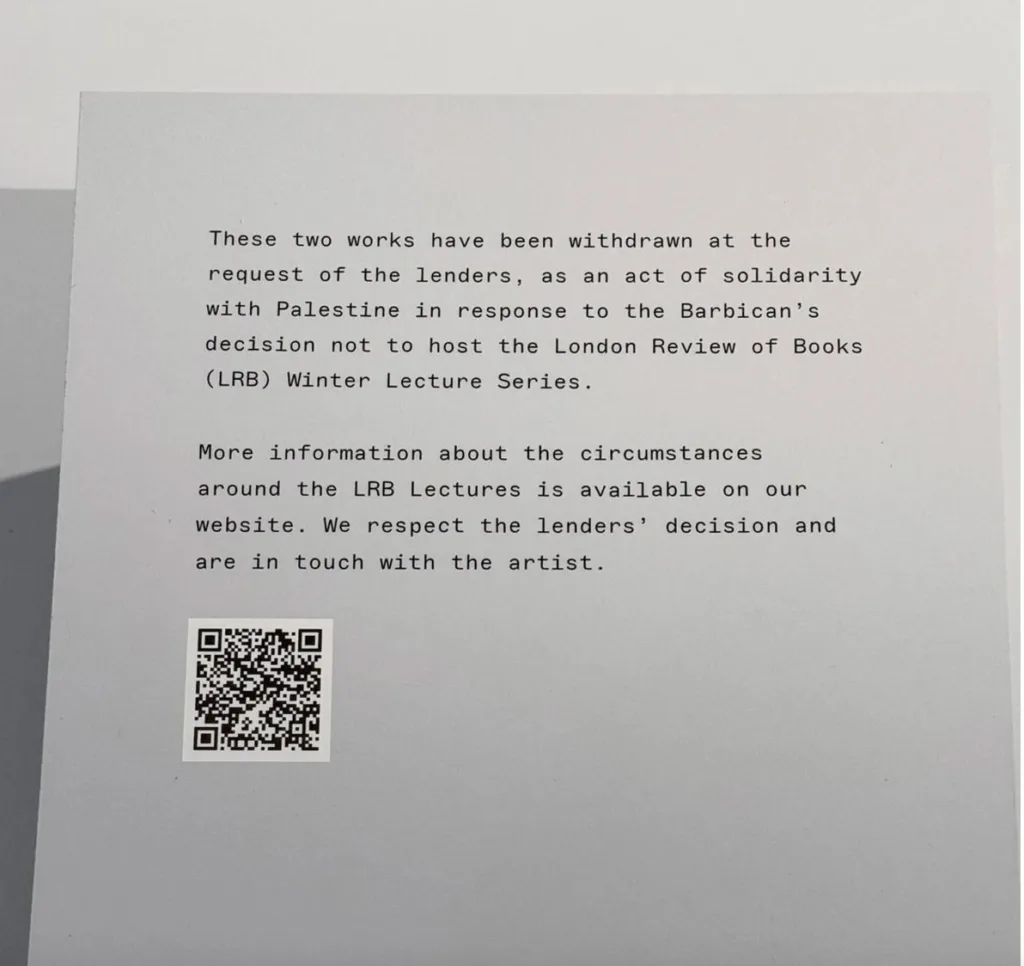In a recent bold move against perceived censorship, French Moroccan artist Yto Barrada, along with other distinguished artists, have withdrawn their works from the Barbican’s highly acclaimed exhibition, “Unravel: The Power and Politics of Textiles in Art.” The controversy unfolded after the art facility cancelled a lecture by Indian writer Pankaj Mishra, sparking accusations of suppressing free speech.

Known for her thought-provoking creations, Yto Barrada took a principled stand against the Barbican’s decision to cancel a talk addressing the Israel-Gaza conflict. Barrada, who co-founded the Cinémathèque de Tanger and also served as the artistic director for a Tangier art house, expressed disdain for an institution that fails to foster open discussion. She emphasized, “We cannot take seriously a public institution that does not hold a space for free thinking and debate.”
The protest gained momentum as artists Diedrick Brackens and Mounira al Solh joined the ranks, requesting the removal of their works from the exhibition. The initial catalyst for dissent came from married collectors Lorenzo Legarda Leviste and Fahad Mayet, who urged the withdrawal of quilts by Gee’s Bend artist Loretta Pettway after the Barbican cancelled Mishra’s lecture.

Diedrick Brackens, renowned for his woven tapestries addressing the Black queer experience, lamented that the censorship of Mishra had tarnished the exhibition’s “well-intentioned vision.” He called for the closure of “Unravel” in solidarity with those advocating for an immediate ceasefire.
The Barbican defended its decision, citing challenges in preparing for the talk due to premature publicity. However, skepticism remains, with some, including speaker Pankaj Mishra, asserting that the real motive is a fear of controversy. This isn’t the first time the Barbican has faced accusations of censorship; last year, they issued an apology for restricting a Palestinian speaker’s topics.

As the list of withdrawn artworks grows, the Barbican’s chief executive, Claire Spencer, released a statement acknowledging the concerns about artistic freedom and committing to preventing similar situations in the future. Despite the controversy, the institution has confirmed that it has no plans to close the exhibition early.
In a display of artistic solidarity, these prominent figures in the art world have taken a stand, challenging the Barbican’s commitment to radical politics and the voices it chooses to amplify. The exhibition initially praised for highlighting the work of women and people of colour, now finds itself embroiled in a debate over artistic freedom and the responsibility of public institutions to uphold open dialogue.


